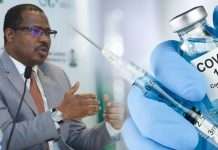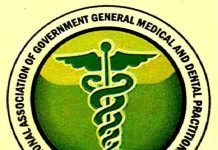
The variant B. 1. 1.529 of the coronavirus, named Omicron, was on 26 November, 2021 designated a variant of concern by the World Health Organisation (WHO). This was based mainly on the advice of the apex health body’s Technical Advisory Group on Virus Evolution (TAG-VE). According to the evidence presented to TAG-VE, Omicron has several mutations that may influence how it behaves, how it spreads or the level of severity of the illness it causes.
The following are some of the things you should know about the variant.
Research efforts
In South Africa and other countries of the world, researchers are carrying out studies and investigations to unravel the puzzles surrounding the variant and will continue to update the world with their findings, as time goes on.
Nature of transmission
Whether Omicron is more easily spread from person to person, compared to other variants, is one thing that has not been categorially understood. In South Africa, the number of people testing positive has risen, even though epidemiological studies are ongoing to ascertain whether it is because of Omicron or other factors.
Level of severity
It has not been ascertained whether infection with Omicron leads to more severe illness, compared to other variants, including Delta. Available information suggests that there are rising cases of hospitalisation in South Africa, even though this may be due to other factors like the overall numbers of people being infected. There is currently no information to suggest that symptoms associated with Omicron are different from those of other variants.
Vaccine efficacy
The World Health Organisation is collaborating with technical partners to decipher the potential impact of this variant on existing countermeasures, including vaccines. The significance of vaccines to the reduction of severe disease and death cannot be overemphasised. Current vaccines have proved to be effective in preventing severe disease and death.
Testing efficacy
The popular and widely adopted PCR tests have continued to detect infection, including those with Omicron, just as it has been with other variants, including Delta. Many studies are underway to determine the possibility of any impact on other tests, including rapid antigen detection tests.
Efficacy of current treatments
The effectiveness of Corticosteroids and IL6 Receptor Blockers in managing patients with severe COVID-19 will continue while other treatments are being assessed to ascertain their effectiveness as a result of the mutant nature of the Omicron variant.
Ongoing studies
Presently, the World Health Organisation is coordinating numerous researchers around the world to understand Omicron. Ongoing studies include assessment of transmissibility, severity of infection, performance of vaccines and diagnostic tests, as well as effectiveness of treatments.
WHO has continued to encourage countries to contribute the collection and sharing of hospitalized patient date through the WHO COVID-19 Clinical Data Platform to quickly describe clinical characteristics and patient outcomes. More information will emerge in the coming weeks and months. WHO’s TAG-VE will continue to monitor and evaluate the data as it becomes available and assess how mutations in Omicron alter the behaviour of the virus.
Recommended actions for countries
As Omicron has been designated a variant of concern, WHO has recommended several actions for countries to take. These actions include enhancing surveillance and sequencing of cases; sharing genome sequences on publicly available databases, such as GISAD; reporting initial cases or clusters to WHO; performing field investigations and laboratory assessments to better understand if Omicron has different transmission or disease characteristics, or impacts effectiveness of vaccines, therapeutics, diagnostics or public health and social measures.
Countries are advised to also continue to implement the effective public health measures to reduce COVID-19 circulation overall, using a risk analysis and science-based approach. They should increase some public health and medical capacities to manage an increase in cases. In addition, it is important that inequities in access to COVID-19 vaccines are urgently addressed to ensure that vulnerable groups everywhere, including health workers and older persons, receive their first and second doses, alongside equitable access to treatment and diagnostics.
Recommended actions for people
The most effective steps individuals can take to reduce the spread of the COVID-19 virus is to keep physical distance of at least one metre from others; wear a well-fitting mask; open windows to improve ventilation; avoid poorly ventilated or crowded spaces; keep hands clean; cough or sneeze into a bent elbow or tissue; and get vaccinated when it is their turn.










